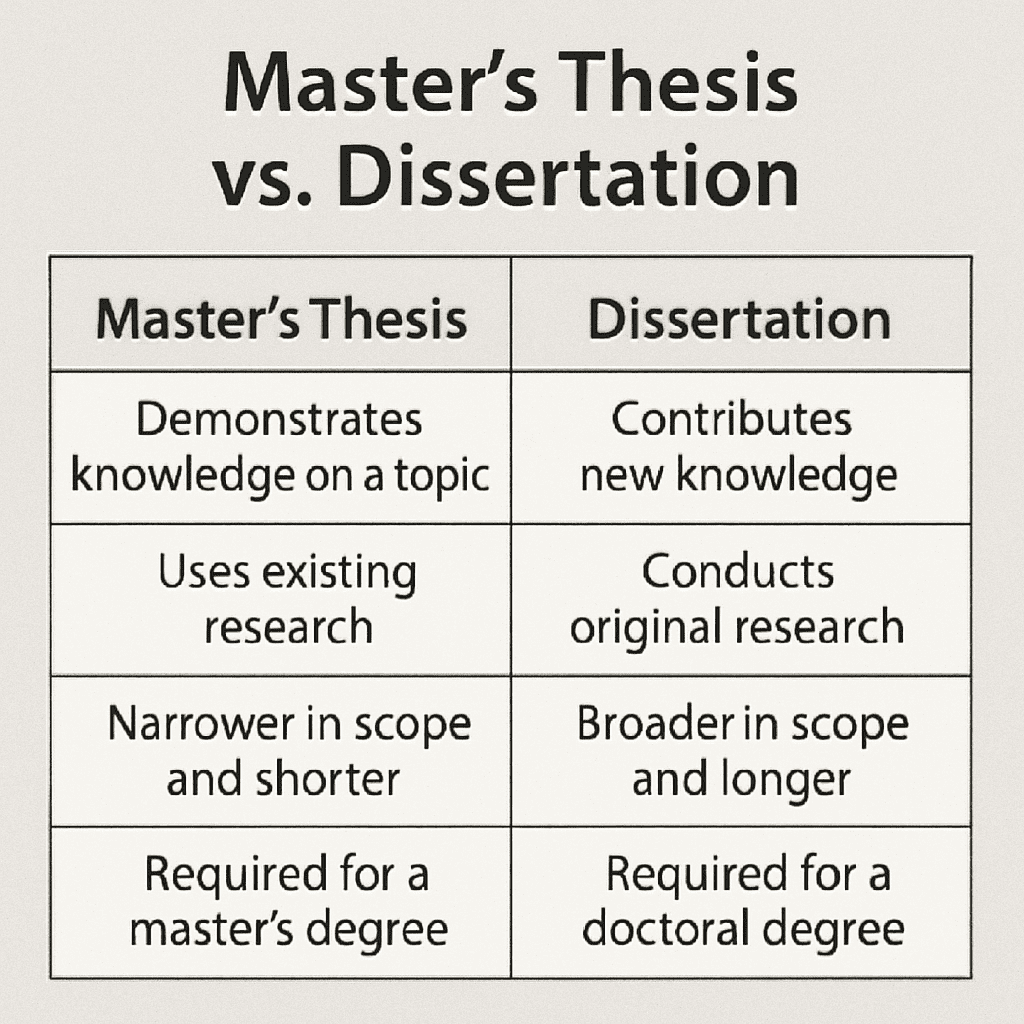Research Proposal Writing Services for Master’s, MPhil & PhD Students – Qundeel.com
Tips for Writing a Successful Master Thesis
Estimated reading time: 8 minutes, 44 secondsWriting a master thesis is a significant academic milestone. It showcases your research skills and understanding of your field. This process can be daunting, but with the right approach, it becomes manageable. A master thesis requires careful planning and execution. It involves selecting a topic, conducting research, and presenting findings. Understanding the basics is crucial. Knowing the difference between a master thesis and a dissertation helps clarify expectations. The length of a master thesis varies.
Typically, it ranges from 40 to 100 pages, depending on the discipline. Choosing a compelling topic is essential. A clear thesis statement guides your research and writing process. Time management is key. Creating a timeline with milestones helps keep your project on track. Regular feedback from your advisor ensures your thesis meets academic standards. For students seeking expert guidance at any stage, Qundeel.com offers professional consultancy and support to make the journey smoother.
What Is a Master Thesis? Understanding the Basics
A master thesis is a substantial academic project. It demonstrates a graduate student’s research and understanding of a specific field. The thesis involves significant research. It requires analyzing data and presenting findings clearly. This project is a culmination of your academic journey. It showcases your capability to conduct independent research.
Here are some fundamental aspects of a master thesis:
- Research-Oriented: In-depth investigation into a specific topic.
- Original Contribution: Adds new insights or understanding to the field.
- Structured Presentation: Includes introduction, literature review, methodology, results, and conclusion.
A clear thesis statement is essential. It serves as a guiding light for your study and written work.

Completing a master thesis enhances critical thinking. It develops research skills and prepares you for future academic or professional pursuits. A well-executed thesis can be a valuable asset in your career.
Master Thesis vs. Dissertation: Key Differences
Understanding the difference between a master thesis and a dissertation is crucial. Both are essential academic projects but serve different purposes. A master thesis is part of a master’s degree program. It focuses on research within a specific field.
It often involves practical research and provides a deep understanding of a topic. In contrast, a dissertation is required for a doctoral degree. It demands original research that contributes new knowledge to the field.
Key Differences:
- Purpose: Thesis demonstrates mastery; dissertation contributes new knowledge.
- Scope: Thesis is narrower; dissertation explores broader topics.
- Length: Dissertations are generally longer than theses.

The choice between a thesis and dissertation depends on your academic path. Knowing the differences helps you prepare accordingly. Each requires dedication and a commitment to research excellence.
Do You Have to Write a Thesis for a Masters? Exploring Program Options
Whether you need to write a thesis for a master’s degree depends on your chosen program. Various master’s programs have distinct requirements.
Some programs opt for a non-thesis path. This may include additional coursework or a comprehensive exam instead. Non-thesis options are common in applied and professional programs.
In contrast, research-focused programs often require a master thesis. These programs emphasize the importance of research skills.
Program Types Include:
- Non-Thesis Programs: More courses, often with practical applications.
- Thesis Programs: Focused on research within the field.
- Combination Programs: Mix of both approaches.
It’s crucial to consult your program guidelines. Understanding these requirements ensures you select the right path. Whether choosing a thesis or non-thesis route, each prepares you for future success.
How Long Is a Master Thesis? Typical Length and Structure
The length of a master thesis often varies by discipline. Typically, it ranges from 40 to 100 pages. This length may include chapters, references, and appendices.
While the length can differ, structure remains consistent. A clear structure enhances both readability and organization.
A well-structured thesis usually contains several essential components:
- Title Page: Includes title, author, and institution details.
- Abstract: A brief summary of the research and findings.
- Introduction: Outlines the research question and objectives.
- Literature Review: Reviews existing research relevant to the topic.
- Methodology: Describes the research design and methods used.
- Results: Presents the data collected during the study.
- Discussion: Interprets the findings and their implications.
- Conclusion: Summarizes the research and suggests future work.
- References: Lists the sources cited in the thesis.
Selecting the right topic is a crucial step in writing your master thesis. It should be engaging yet feasible within your time and resources. Start by reflecting on your interests and the gaps in existing research.
A well-chosen topic aligns with your academic goals. This ensures you remain motivated throughout the research process. Discuss potential topics with your advisor for valuable insights and guidance.
Once you have your topic, crafting a clear thesis statement is essential. This statement should define the purpose and direction of your research. It must be specific, conveying what your thesis aims to explore or prove.
Here are key elements for formulating your thesis statement:
- Clarity: Clearly state the main idea or argument.
- Specificity: Be precise about the focus of your research.
- Relevance: Ensure it addresses a significant issue in your field.
- Feasibility: Consider the scope and resources available.
Don’t rush this step. A strong thesis statement guides your research and writing, ensuring a cohesive and logical thesis.
Conducting a Comprehensive Literature Review
A comprehensive literature review is vital to understand your topic’s existing research landscape. It helps in identifying gaps and framing your research within the larger academic conversation. Approach the review with clear objectives to ensure its effectiveness.
Start by compiling a list of relevant books, articles, and journals. Utilize databases and libraries to find peer-reviewed sources. Focus on both recent studies and seminal works in your field.
As you read, take detailed notes and organize them by themes or concepts. This will aid in synthesizing the information. Pay attention to different methodologies and conclusions.
Consider these steps for an effective literature review:
- Define scope: Determine the parameters of your review.
- Select sources: Prioritize high-quality and relevant studies.
- Analyze critically: Evaluate findings, methodologies, and theories.
- Synthesize: Identify patterns and relationships between studies.
Remember, a thorough literature review strengthens your thesis. It demonstrates your understanding of the field and the context for your research.
Planning and Outlining Your Master Thesis
Proper planning and outlining are crucial steps in writing a successful master thesis. These activities help in organizing your thoughts and ensure a cohesive flow of content. An outline serves as a roadmap guiding you from introduction to conclusion.
Begin by structuring your thesis into sections. Divide it into chapters like introduction, literature review, methodology, results, discussion, and conclusion. Assign specific page or word counts to each chapter based on their importance and complexity.
As you plan, consider these key elements:
- Introduction: Set the stage and state your thesis.
- Literature Review: Summarize relevant research.
- Methodology: Detail your research approach.
- Results and Discussion: Present findings, analysis, and implications.
- Conclusion: Summarize and suggest future research.
By developing a clear outline, you ensure every part of your thesis is well-connected and supports your argument.
Research Methodology: Selecting the Right Approach
Selecting the appropriate research methodology is essential for a master thesis. It defines how you will collect and analyze data. The methodology needs to align with your research questions and objectives.
Consider whether qualitative, quantitative, or mixed methods best suit your study. Qualitative methods explore complex phenomena, while quantitative approaches measure variables and test hypotheses. Mixed methods combine both to provide a comprehensive perspective.
Key steps in choosing a methodology include:
- Identifying Research Questions: Determine what you want to uncover.
- Evaluating Available Resources: Consider your access to tools and data.
- Understanding Method Limitations: Acknowledge potential constraints.
Discuss your chosen methodology with your advisor for feedback. Their insights can help refine your approach and ensure it fits academic standards. Remember, a well-chosen method strengthens your thesis by providing valid and reliable outcomes.
Data Analysis and Interpretation
Effective data analysis is vital to your master thesis. It provides evidence to support your thesis statement. Analyzing data involves examining information collected through your research methodology.
Organize your data first, using charts or tables for clarity. Statistical software can assist in processing complex datasets. While analyzing, focus on patterns, trends, and relationships relevant to your research questions.
Key steps in data interpretation include:
- Identifying Trends: Look for consistent patterns.
- Comparing Results: Relate findings to existing studies.
- Drawing Conclusions: Base conclusions on observed data.
Be honest in assessing what the data reveals. It is crucial to discuss both significant and unexpected findings. This analysis not only supports your thesis but also helps demonstrate your analytical abilities.
Citing Sources and Avoiding Plagiarism
Proper citation is crucial in academic writing. It gives credit to original authors. This practice also strengthens your thesis’s credibility by showcasing well-researched support for your arguments.
To avoid plagiarism, understand your institution’s citation guidelines. Familiarize yourself with styles like APA, MLA, or Chicago.
Key steps to prevent plagiarism:
- Take Detailed Notes: Include publication details.
- Paraphrase Thoughtfully: Rewrite in your own words.
- Use Quotation Marks: Clearly denote direct quotes.
By giving due credit, you maintain academic integrity. Consistent citation builds a trustworthy foundation for your thesis. Remember, a well-documented paper gains respect and adds significant value to scholarly discourse.
Editing, Proofreading, and Finalizing Your Thesis
The editing phase is where refinement happens. Focus on clarity and coherence. Ensure your thesis flows logically from start to finish.
Proofreading comes after editing. Here, check for grammar errors and typos. Reading aloud can help catch mistakes.
Finalizing your thesis involves checking format and guidelines. Adhere to your institution’s specifications.
Key final steps include:
- Review Formatting: Ensure consistency with guidelines.
- Check References: Verify all citations and bibliography.
- Conduct a Final Read: Focus on overall presentation.
Attention to detail in these final stages is crucial. A polished thesis enhances your professionalism and ensures a strong submission.
At Qundeel.com, we understand that writing a master thesis is both a challenging and rewarding academic journey. From topic selection and research methodology to data analysis, editing, and final submission, our expert consultants provide step-by-step guidance to ensure your thesis meets the highest academic standards. With personalized support, professional feedback, and proven strategies, Qundeel.com helps students in Pakistan and beyond successfully complete their master thesis with confidence and excellence.
